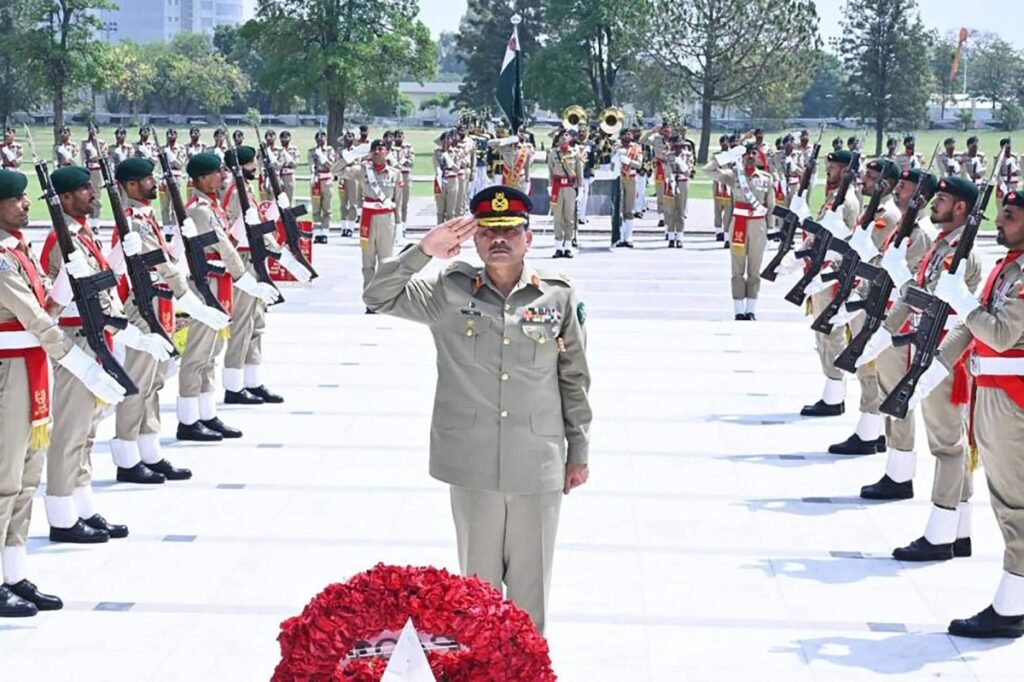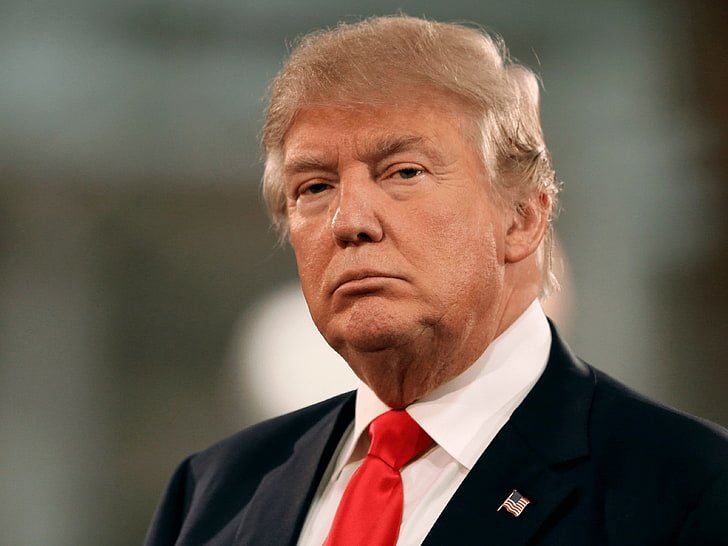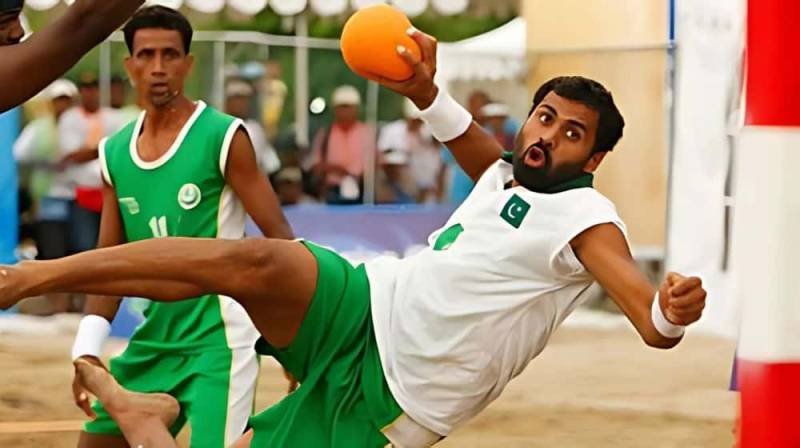Field Marshal Asim Munir’s White House Lunch: A Strategic Symbol of Military Diplomacy Between Pakistan and the U.S.
In a significant development in global diplomatic circles, Pakistan’s Chief of Army Staff (COAS), Field Marshal Asim Munir, was recently invited to a private lunch at the White House — a move seen by analysts as both symbolic and strategic. The host of the lunch was none other than former U.S. President Donald Trump, whose influence over American foreign policy and conservative political circles remains strong, even after leaving office.
Though Trump no longer holds an official title, his continued presence in political discourse and his ongoing campaign activities make him a key player in shaping future U.S. policy. The invitation extended to Pakistan’s top military leader underscores the enduring importance of the bilateral relationship between Pakistan and the United States, particularly on issues concerning security, regional peace, and strategic cooperation.
A Gesture Laden with Significance
This luncheon meeting was more than just a casual meal; it was a calculated diplomatic gesture. At a time when global alliances are shifting and the geopolitical landscape is evolving rapidly — from tensions in the South China Sea to growing instability in the Middle East — personal connections and informal diplomacy play a crucial role in steering the course of international relations.
The presence of Field Marshal Asim Munir, who is currently at the helm of one of the most powerful and respected institutions in Pakistan, signals that the U.S. still considers Pakistan a critical partner in regional matters. The meeting reflects how military leadership, especially in countries like Pakistan where the military holds significant influence, continues to be a key conduit for bilateral dialogue.
Topics of Discussion: From Regional Security to Economic Growth
According to sources close to both parties, the meeting included in-depth discussions on a wide range of subjects, including regional security, counterterrorism, strategic stability, and opportunities for economic development. Although no official agreements were signed or joint statements released, the tone of the meeting was reportedly friendly and forward-looking.
One of the main topics on the table was the ongoing situation in Afghanistan and the broader South Asian region. With the U.S. military withdrawal from Afghanistan still fresh in global memory, both parties reportedly agreed on the need for continued cooperation to ensure stability in the region. Field Marshal Asim Munir emphasized Pakistan’s role as a stabilizing force and its commitment to peace and counterterrorism efforts.
Economic ties were also touched upon, with both sides expressing interest in exploring new avenues for investment and cooperation. While military and strategic issues tend to dominate headlines, economic collaboration often forms the backbone of long-term diplomatic relationships. Discussions reportedly included possibilities for trade, infrastructure development, and support for Pakistan’s economic reforms.
The Evolving U.S.-Pakistan Relationship
The United States and Pakistan have shared a complex relationship for decades. From Cold War alliances to post-9/11 counterterrorism cooperation, the partnership has seen both highs and lows. Recent years have witnessed a degree of diplomatic drift, with the U.S. focusing more on India as a strategic partner in the Indo-Pacific region.
However, meetings like this lunch signal a renewed interest in maintaining and even strengthening relations with Pakistan. Military diplomacy, in particular, has historically played a central role in U.S.-Pakistan relations. Several U.S. presidents have engaged directly with Pakistani military leaders in the past to address security concerns, intelligence-sharing, and mutual defense interests.
Field Marshal Munir’s visit is being interpreted as a reset button for U.S.-Pakistan military ties, particularly at a time when Pakistan is recalibrating its foreign policy to adapt to new global realities. The Pakistan Army chief is known for his professionalism and strategic acumen, and his ability to navigate both domestic and international politics makes him a crucial figure in Pakistan’s external engagements.
PMD Forecasts ‘Very Hot’ Conditions in THESE Parts of Pakistan till June 20
REad This Artical
Timing Matters: A Shifting Global Landscape
This meeting comes at a critical time. The global political landscape is changing rapidly due to a number of ongoing developments: the Russia-Ukraine conflict, U.S.-China tensions, Iran’s growing regional ambitions, and the evolving security situation in the Indo-Pacific. In this climate, countries are seeking to strengthen their alliances and diversify their diplomatic options.
Pakistan, situated at the crossroads of South Asia, Central Asia, and the Middle East, holds strategic value for many global powers. With the China-Pakistan Economic Corridor (CPEC) acting as a key Belt and Road Initiative (BRI) project, and with Pakistan’s close ties to China, its balancing act with Western powers has become more delicate.
By extending a hand of informal diplomacy through this lunch, U.S. figures like Donald Trump are acknowledging Pakistan’s continued relevance in global affairs. Even though Trump is not a sitting president, his involvement in foreign policy discussions can influence mainstream Republican thinking, particularly if he secures another term in office.
Informal Diplomacy: A Powerful Tool
Observers and diplomats have long noted that informal diplomacy — including private dinners, off-the-record meetings, and personal exchanges — can often achieve more than official summits. These interactions allow for more candid conversations, the building of personal rapport, and the opportunity to clear misconceptions without the pressure of public scrutiny.
The White House lunch, although not officially on the diplomatic calendar, carries significant weight. It shows how personal diplomacy and backchannel communication remain powerful tools in international relations. For Field Marshal Munir, such engagements provide a platform to directly explain Pakistan’s position on various issues and to listen firsthand to American concerns and interests.
Strengthening Military-to-Military Engagement
The Pakistan Army and the U.S. military have a long history of collaboration. From joint military exercises to intelligence cooperation, the two forces have worked together for decades, especially during the War on Terror. However, this relationship has faced challenges, including the U.S. raid on Osama bin Laden in Abbottabad in 2011 and disagreements over drone strikes in Pakistani territory.
Despite these strains, military-to-military relations have often remained more stable than political ones. This is partly because of the shared understanding of strategic realities and the professionalism of both institutions. TrumpField Marshal Munir’s visit reinforces this tradition, aiming to rebuild trust and promote renewed cooperation in areas such as counterinsurgency, border security, and intelligence-sharing Trump.
Implications for Pakistan’s Foreign Policy
Pakistan is currently engaged in a delicate balancing act between China, the U.S., and the Muslim world. With growing economic challenges at home, Islamabad needs strong relations with multiple global players to secure investments, economic aid, and trade partnerships. Trump Field Marshal Munir’s outreach to the U.S. could help Pakistan diversify its foreign relations and reduce over-reliance on any one country. Trump
Moreover, this meeting provides a platform for Pakistan to present its narrative on regional issues, such as the Kashmir dispute, Indian aggression, and the humanitarian situation in Gaza. These are matters where Pakistan seeks international support, and engaging with influential figures in the U.S., even informally, helps promote its diplomatic goals. Trump
A Step Toward Future Engagements?
While no immediate outcomes were expected from this meeting, its symbolic and strategic value is undeniable. It sets the stage for future high-level engagements, possibly even official state visits or military cooperation agreements. Analysts believe that this could be the beginning of a new chapter in U.S.-Pakistan relations, one marked by pragmatism, mutual interest, and a willingness to engage despite past differences .Trump
The meeting also suggests that the U.S. is rethinking its strategy in South Asia, possibly moving toward a more balanced approach that includes both India and Pakistan. This could lead to greater regional stability and open up avenues for trilateral dialogues, peacebuilding efforts, and joint ventures in development and infrastructure. Trump
Media and Public Reaction
Reactions to the news of this lunch have been mixed. In Pakistan, many welcomed the development, viewing it as a sign that the country’s military leadership is playing an active role in diplomacy. Some critics, however, questioned the optics of meeting a former president rather than current administration officials. Official
In the U.S., the media treated the lunch as part of Trump’s broader efforts to remain relevant on the global stage. Some commentators noted that this was an unusual but potentially impactful move that could have implications if Trump returns to office. Trump
Regardless of differing views, the meeting sparked discussions on the importance of military diplomacy and the evolving nature of international engagement in a multipolar world. Trump
Conclusion
The lunch meeting between Pakistan’s Chief of Army Staff, Field Marshal Asim Munir, and former U.S. President Donald Trump may not have resulted in formal agreements, but it carries deep symbolic weight. It reaffirms the importance of military diplomacy, informal communication, and strategic engagement in shaping the future of U.S.-Pakistan relations. Trump
As global politics continues to shift and alliances are reevaluated, such gestures could pave the way for deeper collaboration, mutual understanding, and a more balanced foreign policy approach from both countries. For Pakistan, this meeting represents a step toward strengthening its global presence and ensuring that its voice continues to be heard on the international stage.




